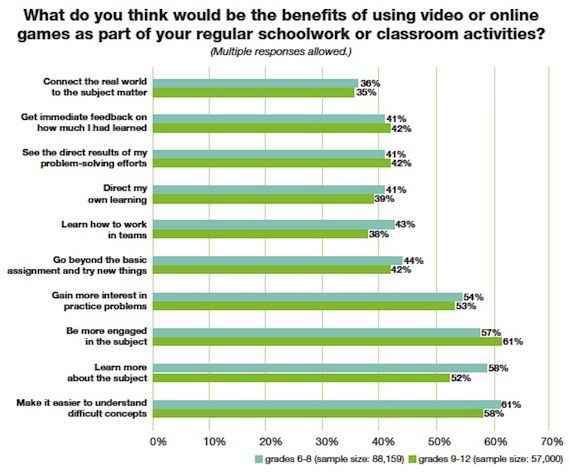Drill Down: Gaming in Education
Incorporating video or online games into instructional activities continues to gain acceptance, as game makers produce increasingly sophisticated products--such as virtual world environments (see "Next Stop, OpenSim!")--that pose many benefits for teaching and learning.
Below, secondary school students identify many positive effects of bringing gaming into the classroom.
Highlights:
- About six out of 10 middle school students think the use of games would help them understand difficult concepts.
- Greater engagement in subject matter is gaming's most widely seen benefit among high school students.
- At both the middle school and high school levels, connecting the real world to the subject matter received the fewest responses.

Data courtesy of Speak Up 2009. Speak Up is an annual national research project that surveys K-12 students, teachers, parents, and administrators. Speak Up is produced by Project Tomorrow, a national nonprofit organization providing leadership, research, and programming to support science, math, and technology education in America's schools. To participate in Speak Up 2010, visit tomorrow.org/speakup/index.html.